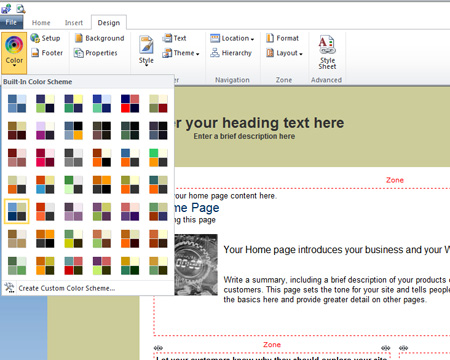This article is more than 1 year old
Google Apps v Microsoft Office 365: Rumble in the enterprise
To web or kinda sorta to web
Works well on Windows
Despite annoyances like these, there is a lot to like in Office 365. Exchange and Office are de facto business standards, and one thing that the Exchange and Outlook combination does well is to support synchronization across multiple clients with offline stores, and on mobile devices, with Exchange ActiveSync widely supported. SharePoint can be frustrating, but it is effective both as an intranet (or extranet) platform and as a means of making documents available from anywhere in a tolerably secure manner.
Another Office 365 advantage is Active Directory Federation Services (ADFS). Once you have completed the admittedly arduous setup, you can manage users through your on-premise Active Directory with single sign-on to Office 365.
Is Office 365 really a big advance over BPOS? The branding and marketing is stronger, and this combined with the incremental improvements in the server applications means that this is a significant launch for Microsoft, even though the essence of the product is not much different. ADFS will be important for larger organisations, since it enables single sign-on across on-premise and Office 365 services and allows businesses to set their own policies for user management. ADFS is one way to disable password expiry, which is a problem in BPOS. It will also be possible to control password expiry though PowerShell.

Small businesses can build a basic web presence Office 365 tools
What about Office 365 versus Google Apps? Unlike Microsoft, Google has essentially just one paid-for plan, at $5.00 per user or $50 if you pay annually. For that, you get 25GB of Gmail storage, Google Docs, Google Calendar, and Google Sites. Both offerings include a 99.9 per cent uptime guarantee and 24/7 support in the enterprise editions.
The pricing looks like an easy win for Google, but of course, it is not that simple. These two products are more different than they are alike, though both are likely to deliver substantial savings compared to on-premise deployments.
Office 365 is based on the assumption that you would rather type your documents in Microsoft Office than in a browser, and would rather use Outlook to manage your email, contacts and appointments. Google Apps can integrate with Office and Outlook, but it is a source of friction, whereas in Office 365 it is natural since Outlook is designed as the Exchange client.
That friction is visible in Google Cloud Connect, its Office plug-in. Cloud Connect automatically synchronizes Office documents with Google Docs, and adds simultaneous collaborative editing without SharePoint. That sounds good, except that it abuses the Track Changes feature of Office under the covers. Another weakness is that Cloud Connect documents are stored in Microsoft's format, which means you cannot edit them in the browser except by converting them to Google's format, at which point you have two copies and it gets confusing.
Beware SharePoint Workspace foibles
Do Google Apps meet business needs equally as well as Exchange, Outlook, Office and Active Directory? It depends. Google Docs is less feature rich than Microsoft Office, offline is a problem, and as soon as you start relying on Google's integration with Office and Outlook its story becomes less compelling.
One the other hand, Microsoft's Office 365 fails to deliver all the benefits of cloud in terms of client-neutrality, freedom from the hassles of managing local desktops, and removal of the need for on-premise servers. You still need Office, there is still a bias towards Windows, and some features actually require on-premise servers.
All this is by design, and in a Microsoft-platform context Office is a strong offering with attractive commodity pricing. It is also worth considering in cases where the document features in Google Apps are insufficient, or where working offline is critical, though beware SharePoint Workspace and its foibles.
The opposite is also true. If Google Apps does all you need, it is both cheaper and more effective in liberating businesses from the management of IT infrastructure. ®
